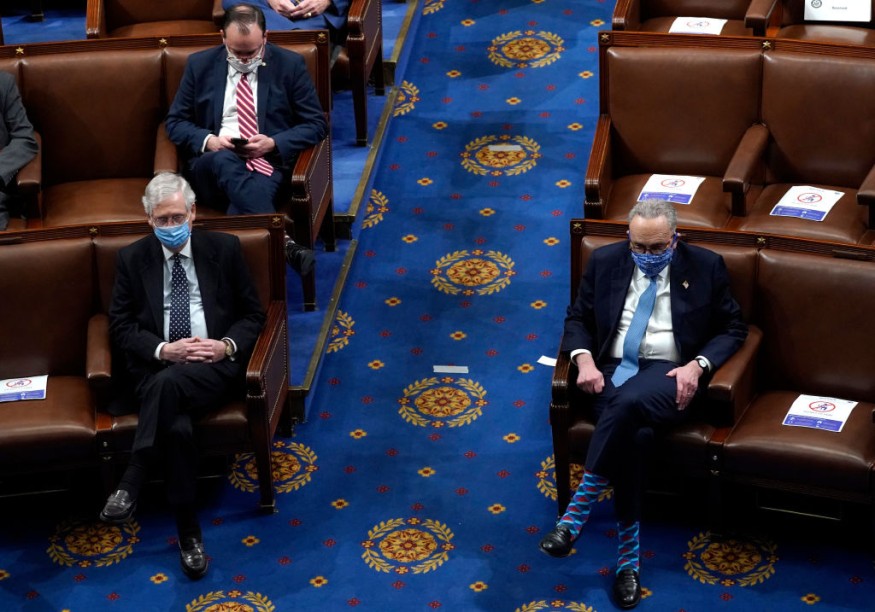McConnell, Schumer Fail To Seal Deal on Senate Power-Sharing

The two Senate leaders, Mitch McConnell and Chuck Schumer, have failed to reach a power-sharing deal that will put the two parties on equal footing.
During a meeting on Tuesday, Senate Majority Leader Mitch McConnell and Senate Minority Leader Chuck Schumer discussed how to share power in an evenly divided Senate.
According to The Hill report, Schumer said they talked about a lot of issues but did not manage to reach an agreement.
Disagreements on the 60-vote legislative filibuster impeded the talks, and it could drag out the negotiations for several days. McConnell said keeping the filibuster is important and should be part of their negotiations for the Senate's power-sharing agreement.
McConnell's spokesman, Doug Andres, said that in the meeting, the Senate majority leader expressed his long-held view that the crucial, longstanding, and bipartisan Senate rules on the legislative filibuster remain intact, particularly during the power share for the next two years.
"Discussions on all aspects of the power-sharing agreement will continue over the next several days," Andres said in a Daily Mail report.
The upper chamber will be a 50-50 split on Wednesday, with Vice President-elect Kamala Harris available to cast a tie-breaking vote for the Democrats. Schumer will then be promoted to majority leader, and Democrats will take over committee chairmanships.
Other issues, such as whether a tied vote in committee will allow legislation or a nomination to come to the Senate floor, would need to be worked out.
Schumer's spokesman Angelo Roefaro told the Daily Mail that Schumer expressed the fairest, most reasonable, and the easiest path forward to adapt the 2001 bipartisan agreement, without drastic changes from either side.
The filibuster is a procedural mechanism that allows the minority to hinder legislation from advancing in the Senate. It could keep debate open on a legislative item until the Senate votes to close it. Instead of the usual 50, closing debate requires 60 votes. You cannot move to final voting until you have 60 votes.
Both Republican and Democratic parties were responsible for killing off aspects of the filibuster over the years, such as the case in non-SCOTUS nominations.
Reports said that McConnell would need it retained to prevent Democrats from pushing through every bill they want.
According to a Fox News report, Schumer noted that they had three things they got to do quickly: the impeachment, nomination, and the COVID-19 pandemic. McConnell said he hopes the House will wait until Thursday to send the impeachment articles to not overshadow the Inauguration Day.
House Speaker Nancy Pelosi has yet to reveal when Congress will submit the impeachment articles to Senate.
Democratic Senators Changing the Majority
Three new Democratic senators will take office after Georgia Democratic Sens. Raphael Warnock and Jon Ossoff won the Georgia senate race.
Warnock and Ossoff won the Jan. 5 senate race against Republicans Kelly Loeffler and David Perdue. Democrat Alex Padilla will also be replacing the Senate seat that Harris vacated.
In January 2001, the Senate was an even split, and it allowed for bills and nominations to advance to the floor, even if they tied in committee votes. At the time, Vice President Dick Cheney's tie-breaking vote gave the GOP the Senate majority.
Biden will need some of these rules to be put in place as he needs to immediately confirm his cabinet officials.
Subscribe to Latin Post!
Sign up for our free newsletter for the Latest coverage!

















